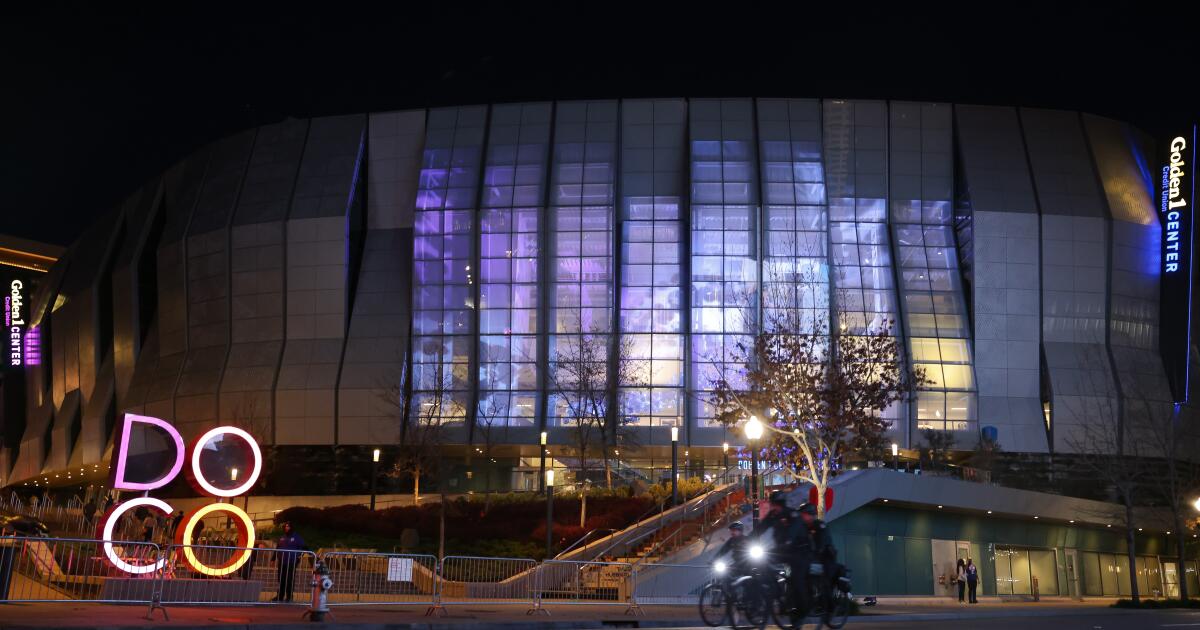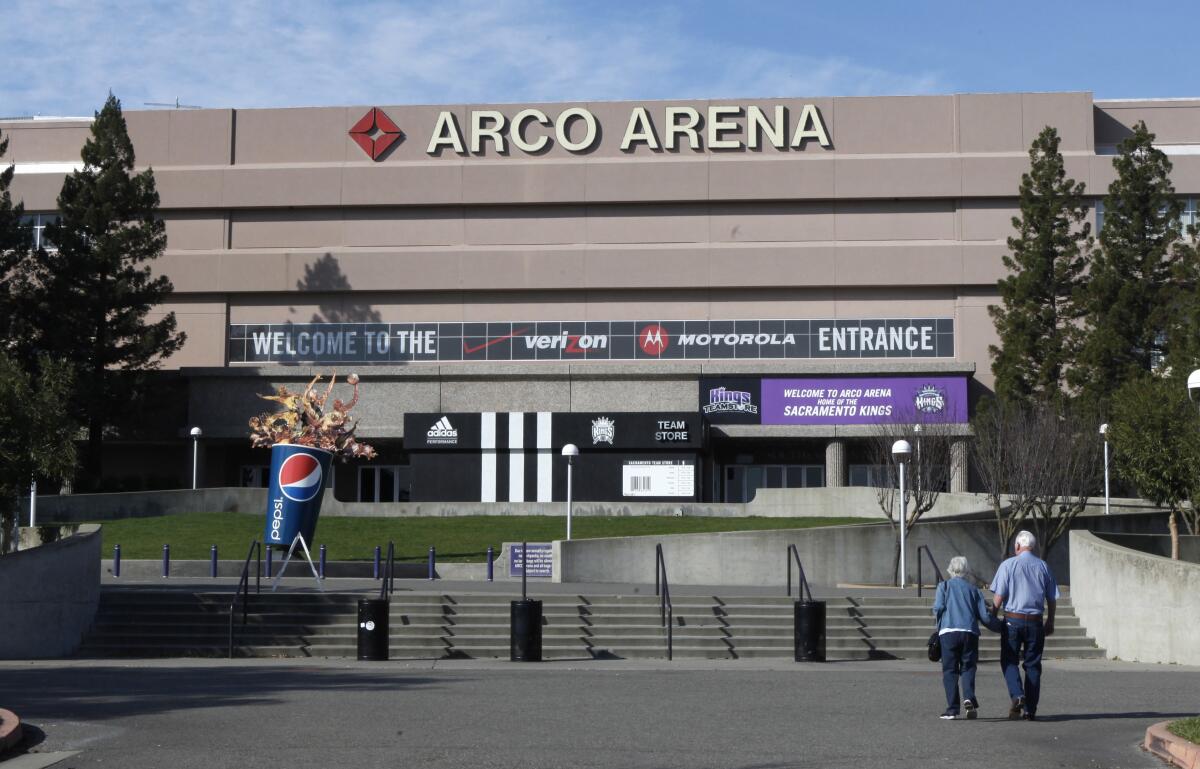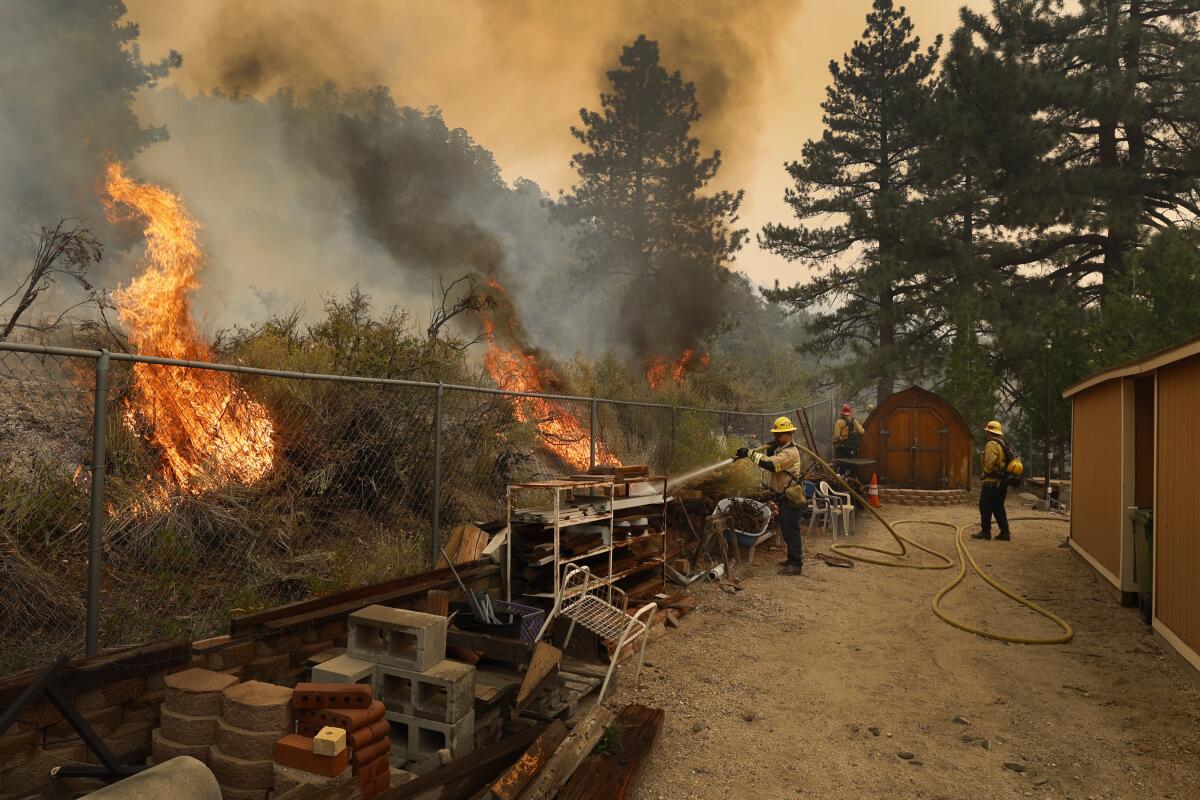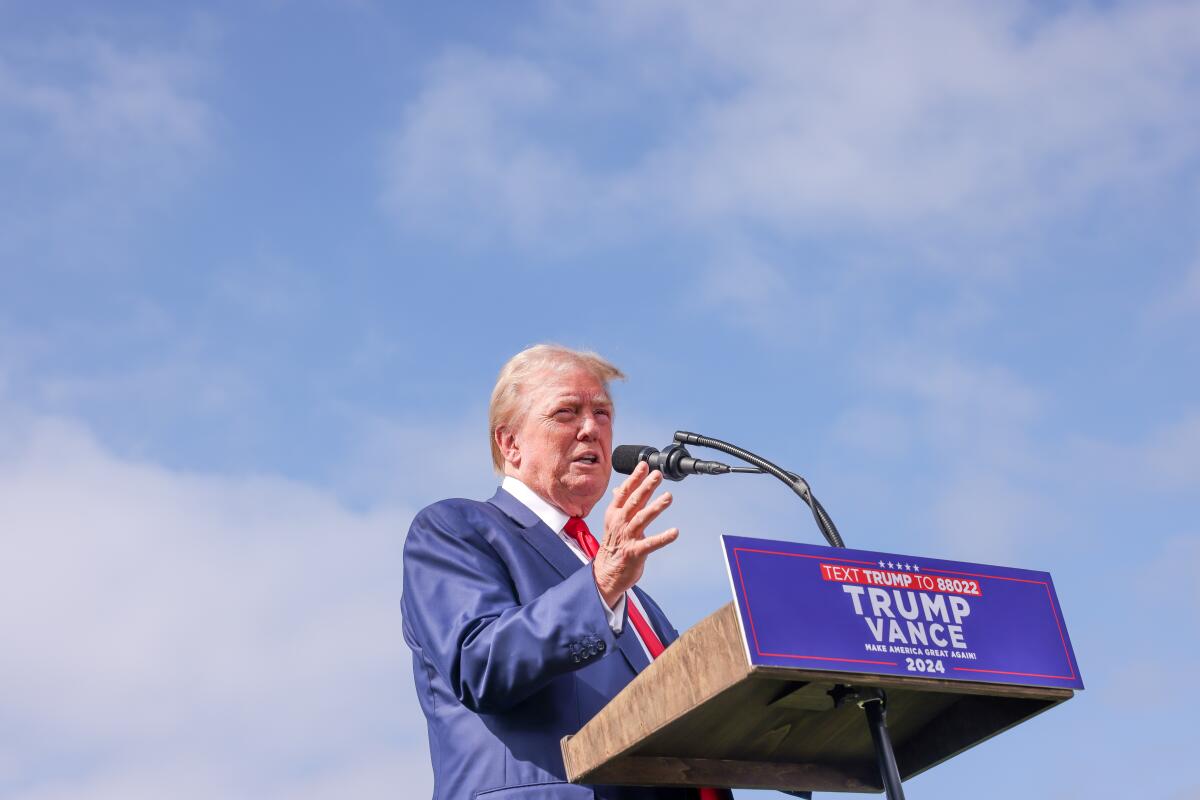Sports
Column: Fossil fuel ads are rampant in American sports. That’s not good

Less than half a mile from the California Capitol, the Sacramento Kings play basketball in a solar-powered arena that the team’s owner says has helped make the Kings “the most sustainable franchise in all of sports.”
Venture inside the Golden 1 Center, though, and you might be served a helping of fossil fuel propaganda.
The Kings are one of at least 59 U.S. sports franchises that accept sponsorship dollars from oil giants, or utility companies whose businesses are primarily fossil fueled, according to a survey released Thursday by UCLA Law’s Emmett Institute on Climate Change & the Environment. The list includes six California teams: the Kings, LAFC, the Oakland Athletics, San Francisco Giants, San Francisco 49ers and, as I’ve reported previously, the Dodgers.
If you’re wondering why this matters, I could tell you about research suggesting that fossil fuel companies, much like tobacco profiteers back in the day, pay off the owners of beloved institutions, including our favorite teams, to cleanse their dirty images — and lull us into forgetting that their noxious products are causing hotter heat waves, more intense wildfires and growing water scarcity (not to mention regular old deadly air pollution).
I could tell you about the research. Or I could ask you to imagine going to watch the Sacramento Kings — or the Giants, or the 49ers, or LAFC — and seeing a cigarette advertisement above the scoreboard. Or a gun ad.
Unimaginable, right? So why is Big Oil propaganda considered acceptable?
The Emmett Institute’s communications director, Evan George, who conducted the survey with help from several undergrads, thinks it’s time to end these sponsorships — known as “sportswashing,” a play on greenwashing.
“Big Oil wants to look like community heroes, not a public nuisance,” he said.
George noted that California’s attorney general, Rob Bonta, is suing major oil companies for climate damages, with state officials accusing them of a “decades-long campaign of deception.” The defendants include Chevron, which sponsors the Kings, Athletics, Giants and LAFC, and Phillips 66, which sponsors the Dodgers.
“So many more Californians are going to go watch a ballgame on the weekend than are going to read a 100-page complaint by the state of California,” George said. “That’s what so pernicious about fossil fuel sponsorships.”
Speaking of Bonta, the attorney general is an Athletics fan. When he and his son threw the ceremonial first pitch before an A’s game in Oakland in 2018, the cutesy-car Chevron ad on the outfield wall provided the highly visible backdrop — at least in the video Bonta, a state Assembly member at the time, later posted on Instagram.
A Chevron advertisement on the left-field wall at Oracle Park in San Francisco, seen in 2021.
(Wally Skalij / Los Angeles Times)
I’m not criticizing Bonta. I’ve been going to Dodgers games my whole life, and reporting on climate for 10 years, and only this summer did it finally dawn on me that every time I post a panoramic picture of Dodger Stadium on social media, I’m providing publicity for Phillips 66, whose 76 gas station ads loom above both scoreboards.
Does Bonta think California teams should stop accepting fossil fuel sponsors? His spokesperson wouldn’t tell me.
United Nations Secretary-General António Guterres, though, has called on all nations to ban fossil fuel ads.
In theory, the climate-conscious California Legislature would be a great place to start.
In practice, though, pushing aggressive anti-oil legislation through Sacramento can be difficult due to the many moderate Democrats who take campaign cash from oil companies. Which is why it would be extremely helpful if private-sector actors such as sports teams would take the lead, by helping make oil companies social outcasts.
I started this column with the Kings not only because they play a few blocks from the Capitol, but also because of the revealing contrast between the climate-friendly image presented by their owner, former tech executive Vivek Ranadivé, and the fossil fuel propaganda to which Ranadivé is happy to expose fans for the right price.
As noted in the UCLA survey, Chevron has bankrolled a video interview series with Kings players driving around the city called “The Winning Drive.” (A social media search also turns up Chevron-sponsored “Drive of the Game” highlight clips on the Kings’ X account.) The team also partners with Marathon Petroleum subsidiary Arco, which last season offered free food and drinks at the Golden 1 Center to fans who patronized its gas stations.
As Ranadivé wrote several years ago, after the Golden 1 Center opened: “We can only beat back climate change and improve our environment if everyone does their part. And it’s heartening to see that progress is happening.”
The cognitive dissonance could be even worse. The Kings’ previous arena was literally named for Arco.

Arco Arena, the former home of the Sacramento Kings, is seen in 2011. The building was demolished in 2022.
(Rich Pedroncelli / Associated Press)
A Kings spokesperson didn’t respond to my request for comment. Neither did representatives of the Athletics or the Giants. Same goes for LAFC, which, like the Dodgers Foundation, has teamed up with an oil giant, in this case Chevron, for the purpose of supporting kids and families — a noble cause that nonetheless serves to bolster the polluting company’s image among local communities. Which is most certainly Chevron’s ignoble goal.
By refusing to talk, those franchises followed the same playbook as the Dodgers, whose leaders have declined to say anything about my columns calling for the team and its official charity to stop taking fossil fuel money.
The Dodgers’ deafening silence hasn’t quieted a public outcry.
As of Wednesday evening, 11,700 people had signed a petition urging the team’s owner, Mark Walter, to drop Phillips 66 as a sponsor and take down the 76 ads. The Sierra Club Angeles Chapter, meanwhile, was planning a rally outside Dodger Stadium to make the case. It’s scheduled for this Sunday at noon, before a home game.
“I hate the fact that I can’t take a photo of my child without 76 in the thing,” George said.
No one team can save the world on its own. But as I’ve written previously, what happens in L.A. doesn’t stay in L.A. Through its entertainment, its technology and its culture more broadly, this city is a global trendsetter.
And oil money in sports is a global problem. The New Weather Institute released a report this week estimating that fossil fuel companies are spending $5.6 billion on active sports sponsorship deals around the world.
It’s hard to know how much of that money is being spent in the United States. Even the Emmett Institute’s tally of 61 fossil fuel deals across six leagues — including two league-wide partnerships — is definitely an undercount.
Watching the Dodgers play the Braves at Atlanta’s Truist Park on TV over the weekend, for instance, I noticed a Marathon Petroleum ad on the outfield wall. That sponsorship wasn’t reflected in the data used by UCLA, which came from London-based firm SportsPro Media. The data also didn’t include ExxonMobil’s deal with the NBA as the league’s official gasoline — although it did reflect that Exxon is also the WNBA’s official fuel.
“I wouldn’t say this is comprehensive,” George acknowledged.

That’s an Arco ad in blue on the outfield wall at Petco Park in San Diego. But the Padres aren’t included in UCLA’s tally of fossil fuel sponsorships.
(K.C. Alfred / The San Diego Union-Tribune)
Of the 61 sponsorships reflected in UCLA’s count — full spreadsheet here — 26 are oil companies. The other 35 are either gas utilities or electric utilities that get the majority of their electricity from coal or fossil gas.
I know some of you probably think sports aren’t the right venue to deal with climate change. Go after oil and gas executives, you may be thinking. Win elections. March in the streets, even. But quit whining about billboards.
I hear you — I do. The thing is, global warming is like any other historical injustice. Right down to harms that are felt first and worst by people of color, and political systems that badly need to be shaken from their stupor.
To avoid climate chaos, we need society’s most powerful people — in sports, entertainment and other industries with major cultural and economic clout — to stop sitting on the sidelines and start taking real responsibility.
Or we could look forward to a future of 110-degree summer afternoons at the ballpark.
CALIFORNIA BURNING

San Bernardino County firefighters work to save a home in Wrightwood as they battle the Bridge fire on Sept. 11.
(Allen J. Schaben / Los Angeles Times)
As of Wednesday afternoon, Southern California’s three major blazes — the Bridge, Line and Airport fires — had burned 117,000 acres. Fortunately, firefighters were gaining an edge over the infernos as temperatures dropped. The Bridge fire was 37% contained, the Line fire 50% contained, the Airport fire 35% contained.
As usual, there are stories of heartbreak and hope. Let’s go blaze by blaze, starting with the Bridge fire:
- Some of the worst damage has been felt in the San Gabriel Mountains town of Wrightwood. Here’s what it’s been like as the flames encroach. (Story by Nathan Solis, Hayley Smith and Lila Seidman, L.A. Times)
- SoCal ski resorts are hoping to survive — now and into a scary future. (Alex Wigglesworth, Summer Lin)
- In Mount Baldy Village, residents banded together to save as many homes as they could. (Nathan Solis)
Moving to the San Bernardino Mountains, we’ve got the Line fire:
Last but not least, let’s journey to Orange County’s Trabuco Canyon, and the Airport fire:
- When to flee, and when to stay put? Many residents faced this terrifying question. (Hannah Fry)
- Here’s a surreal video of a firefighter rescuing a severely injured woman. (Noah Goldberg, Colleen Shalby)
- Volunteers evacuated hundreds of horses — common practice in Orange County. (Gabriel San Román)
- Some victims have been left wondering: Why were those homes saved, but not mine? (Colleen Shalby)
As usual, satellite imagery of the smoke is mind-boggling. And for on-the-ground photos, you can’t do better than these stunning images from my L.A. Times colleagues Wally Skalij , Gina Ferazzi and Allen J. Schaben.
A few more stories on the consequences of the climate change-fueled conflagrations:
Having trouble parsing all the wildfire lingo? Here’s a guide to the key terms, from The Times’ Jon Healey and Joseph Serna. Also, here’s a guide to evacuation zones, shelter locations and support for fire victims.
ONE MORE THING

Former President Trump speaks at a news conference at his Trump National Golf Club in Rancho Palos Verdes on Sept. 13.
(Christina House / Los Angeles Times)
I am not the president of the United States. (Probably for the best.) But if I were, I would not threaten to withhold firefighting aid when the state is on fire, or at any other time, as former President Trump did last week.
Details here from The Times’ Seema Mehta, Hailey Branson-Potts and Faith E. Pinho. The California Professional Firefighters union was not pleased. The group’s president accused Trump of “threatening our public safety.”
This is the latest edition of Boiling Point, a newsletter about climate change and the environment in the American West. Sign up here to get in your inbox. Or open the newsletter in your web browser here.
For more climate and environment news, follow @Sammy_Roth on X.
Heads up: Based on incorrect information from state officials, Tuesday’s Boiling Point listed the American Forest & Paper Assn. as opposed to Senate Bill 1053. The association is neutral on the bill.










